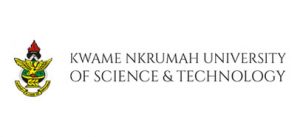Kwame Nkrumah University of Science and Technology
The KNUST has, since January 2005, transformed from its previous centralized system of administration into significantly decentralized one called the Collegiate system.
Under this system, the various faculties have been condensed into six colleges. Since its inception, the University has been administered on the Faculty-based system.
This naturally led to a situation where new Faculties and Institutes were created to meet the ever-growing academic pursuits of students. The resultant collection of Faculties largely hampered efficient administrative and academic operations, as duplication of efforts and long administrative processes were rampant. The need to deal with these complexities and harmonize the operation of the existing structures became apparent and unavoidable. This was more so, with the ever-increasing numbers in student population. True to the vision to make KNUST the model for technological education in Africa and the Vice-Chancellor’s commitment to academic excellence, the Collegiate System came into being with the promulgation of the statutes on November 29, 2004.
General Information
The University is situated approximately on a sixteen square-kilometre campus of undulating land and pleasant surroundings, about seven kilometres away from the central business district of the city of Kumasi. The campus presents a panorama of beautiful and modern buildings interspersed with verdant lawns and tropical flora, which provide a cool and refreshing atmosphere congenial to academic studies. It has within the short period of its existence become an important centre for the training of scientists and technologists not only for Ghana, but also for other African countries as well as from other parts of the world.
There are six Halls of residence and a number of hostels in the University. They are Queen Elizabeth II, Unity, Independence, Republic, University, and Africa. Three of the Halls of residence are mixed, two for males only and one for females only. Of the five hostels, two are for postgraduate students, one for both undergraduate and graduate students and managed by the Ghana Universities Staff Superannuation Scheme (GUSSS).
Medical students of Komfo Anokye Teaching Hospital inhabit one of the hostels, while the last one is under the management of the Social Security and National Insurance Trust (SSNIT).The Halls are self-contained, each with its kitchen, dining hall and separate junior and senior common rooms for students and senior members of the hall. The Halls of Residence, the Administration Block, the Library and the Great Hall occupy the central portion of the grounds.
The University started awarding its degrees in June 1964. All degree examinations are reviewed by external examiners and moderators to ensure that high academic standards are maintained.

